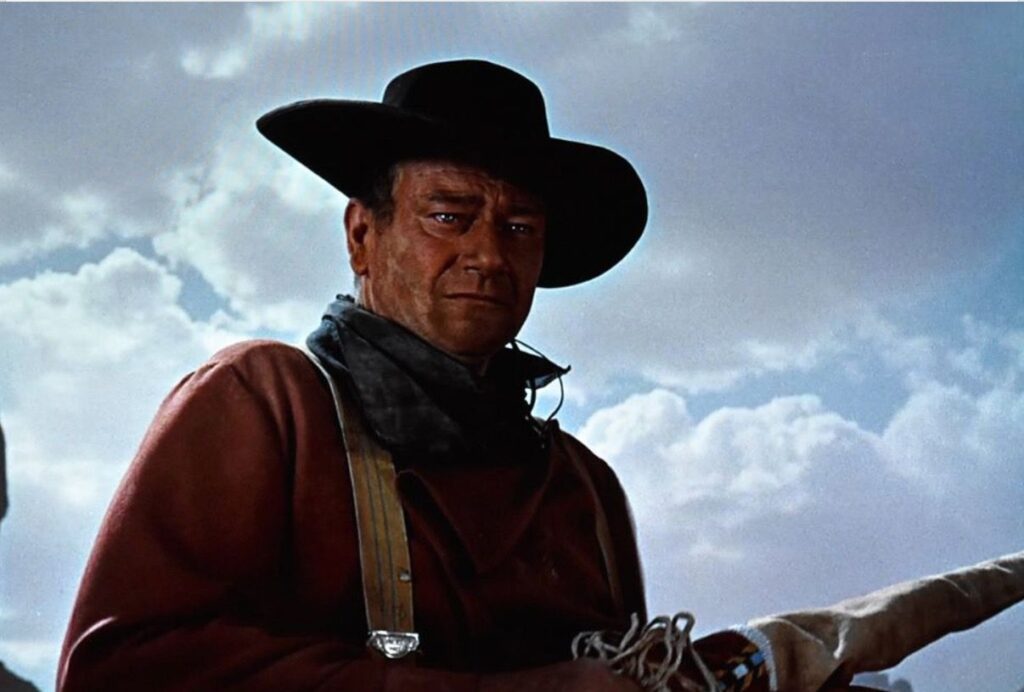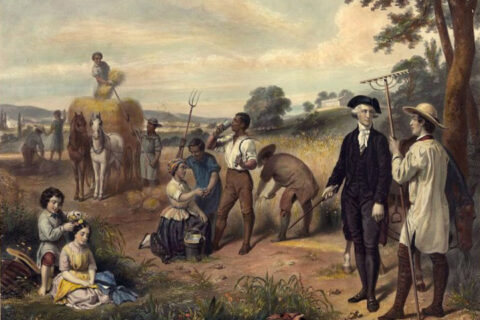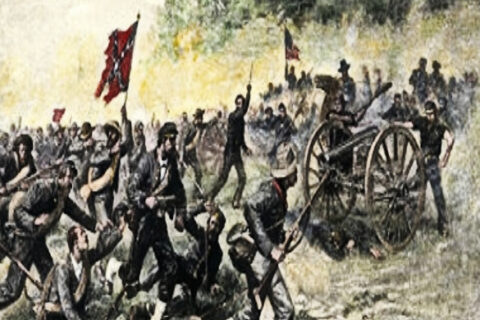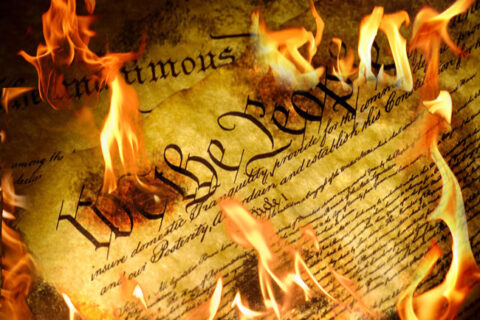One thing vital for the human experience is to have myths. A “myth” isn’t necessarily false, though it can be. A myth is “a usually traditional story of ostensibly historical events that serves to unfold part of the world view of a people or explain a practice, belief, or natural phenomenon.” One of our writers recently covered the myth in a good article you should check out, but I wanted to speak directly to a specific part of any good myth. The hero.
Every culture has myths. Often, the hero is a pseudohistorical figure who exemplifies ideals and values that the culture holds dear. These figures are often depicted far different than the real figures they were based on, in order to more clearly portray the ideals that the culture values. King Arthur and St. George are key ones for the English. France has Roland, Germany has Arminius and Siegfried, and Switzerland has William Tell. These stories are transmitted different ways: told to children as bedtime stories, plays, or even films.
The prime hero in our culture’s stories is usually a pioneer or cowboy. Daniel Boone is probably the quintessential American pioneer and the men who died at the Alamo (which is America’s Thermopylae) are often depicted more as cowboys. I’d argue a cowboy is a type of pioneer, rather than a separate category. These are men who make their living on the frontier, risking life and limb, ostensibly for a better life. The main difference I see in the stories is that an explicit “cowboy” is portrayed more frequently as a loner who is more required to use violence.
The best summation of the struggle this heroic figure must face comes from The Searchers. As Mrs. Jorgensen says:
It so happens we be Texicans… We took a reachin’ hold, way far out, past where any man has right or reason to hold on… A Texican’s nothin’ but a human man out on a limb… This year an’ next and maybe for a hundred more. But I don’t think it’ll be forever. Someday this country will be a fine good place to be… Maybe it needs our bones in the ground before that time can come.
You see in that passage certain realities. A community of largely self-reliant people who wish to make better lives and be left alone from contemporary governing authorities.
The cowboy is a rebel, often articulated as an outlaw. Jesse James, the fictional Josey Wales, and other outlaws are always depicted as heroic. We idolize and admire these men. Why? Look at what are actually “our values.” We love this rugged individualism, the cavalier faith, the love of nature. We make movies and songs ad nauseum about these men. You can barely see the name of the man who killed Jesse James, Robert Ford, without the title of “Coward.”
Whether the cowboy is an outlaw or a lawman, both tend to live by their own code. In fact, many lawmen were former outlaws. What is Tombstone if not lawmen acting outside the law? What is The Magnificent Seven if not at least quasi-outlaws seeking to act as guardians in an area without law?
I’m going to go a bit more in detail with two fictional examples: Burt Reynold’s Gator series and that of John Wayne in The Searchers (a screenshot of which is my avatar). I pick these two examples because while they are quite different from one another, in Gator being more playful and Ethan Edwards more stoic and more violent, the same heroic elements come out in both.

The Searchers takes place in 1868. Ethan Edwards is a Confederate war hero who did not go to the surrender at Appomattox and who likely engaged in criminality (as evidenced by his freshly minted gold coins) in the three years between the end of the War and the start of the film. He butts heads with the local law (who is also the local reverend) and basically goes out on his own to wage a one-man war on the Comanche. He has a single-minded drive to save his niece from Indian hands, even if it means killing her.
In White Lightening, the prequel to Gator, Gator McKlusky is in prison for moonshining and becomes a confidential informant in order to take down the sheriff who killed his brother. His father disapproves of him becoming a confidential informant because he’ll be hurting folks who are just trying to earn a living. In Gator, Gator is again willing to work for the government but rather than a corrupt cop, he’s putting away a mobster who murders, peddles drugs to kids, engages in prostitution of said kids (which disgusts Gator), etc. So once again, you’ve got an example of a man outside the system, willing to work for it, when his own personal code tells him to.
In both examples, these men break laws of society, live according to their own codes, and are not fit for normal society (Ethan on the frontier, Gator in the swamp). You see this in the final scene of The Searchers with Ethan Edwards outside the home as the door closed and with Gator when he drives away without the girl.
Looking at Gator or Ethan Edwards, you see a loner with a moral code, a compliance with the law when it’s useful, and disregard of the law when it isn’t. Gator is a CI only to catch exceedingly bad men, not random moonshiners, and Edwards is a member of a posse to catch Comanche but breaks away as soon as they get in his way. He disregards Captain Clayton as soon as it suits him. That’s the point. It isn’t that the cowboy is explicitly an outlaw/rule-breaker, but rather the laws don’t hold much sway over him. This rampant individualism made the West and somewhat the South what they are. You also see it in the cavaliers, at least to some extent. They respect authority, but there is a general sense of embracing the notion that “laws are for the guidance of wisemen and the obedience of fools.”
Many cowboys were former Confederates who went out west because of how the War went (it’s even a verse of “I’m a Good Old Rebel”). Some may argue that the cowboy (of primarily Anglo-Celtic extraction) largely borrowed things from the Spanish vaquero, but there are still unique aspects. Most notably, the culture from which he derives his values. Yes, the cattleman who is a native Spanish speaker may live his day-to-day life very similarly to the cattleman who is a native Anglo, but the differences are just as profound as the differences between a French, English, and German soldier (see Ernst Junger’s Storm of Steel for a comparison of these different men). What they fight for is different. Whether Davy Crockett actually gave a heartfelt speech to William B. Travis on the values of republicanism (like John Wayne does in the 1960 Alamo) is unclear, but he risked his life to try to guarantee those protections for his people. While yes, Mexico was also a republic, the disparity between a republic led by Anglo-Celtic Americans and that of Iberoamericanos is striking.
The cowboy is also an attractive hero for modern sensibilities, notably because of his resistance to an ineffective and corrupt government (which seems to be most in existence today). Unfortunately, there are no more “frontiers” on which he can really operate. Most modern westerns involve lawbreaking, like the surprisingly good Hell or High Water, because there are no more gray areas where men can operate. The closest thing to that is the frontier entrepreneur investing in up-and-coming markets around the world. While there’s something impressive about such investors, such men are hardly self-reliant. If something were to go awry in a frontier market, they would flee to their embassy, not fight. The draw of the hero is the risk to life and willingness to use violence if need be. It is a willingness at its core to live according to his own code and willing to live outside society to earn money and live as he wishes. This also plays into the natural libertarian streak many Southerners fall into.
This isn’t to tell you that you should start moonshining, hunting Comanche, or emulating these characters 100%. For one thing, in most depictions of the cowboy, he fails to find real happiness. They’re enjoyable stories, but the reason for their significance isn’t to do a 1 for 1 copy of the characters. What can be taken from the stories, as with all heroic tales, is the example of what you find desirable. The inner strength, the willingness to sacrifice everything you have for what you believe is right, the disgust at the federal government and its inefficiencies.
All of these are admirable traits and whether it’s a cowboy, a moonshiner, a truck driver, a mechanic, or whatever, you can still try to inculcate those values. As Aristotle said, “we are what we repeatedly do. Excellence, then, is not an act but a habit.” Find an ideal, strive for it, and practice it.
A Southern man trying to make a good Southern plan.
Deo vindice!







In Florida, cowboys were called “cow hunters”, and I had an uncle who worked as a cow hunter in the closing days of open range grazing here. When he died, his coffin was draped with the Confederate flag, and the church organist played Dixie during the service, as he had requested.